Athen’s Block
An investigation on architecture and language
the inspiration
| an arial photo of modern Athens street grid |
|---|
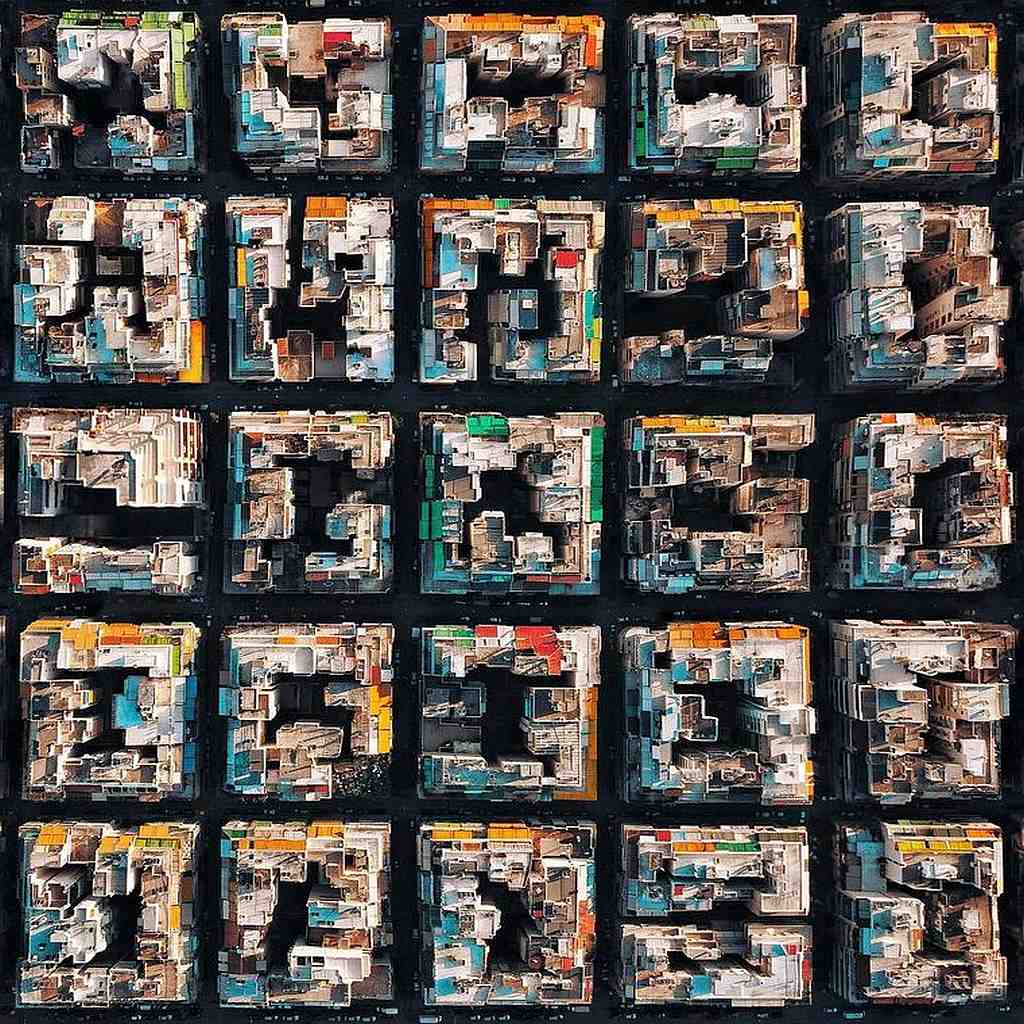 |
older artworks, specifically those questioning J.Albers, H.Hofmann and Vera Molnar.
| lieschen mueller | ||
|---|---|---|
| © 2014-16 inspired by J.Albers |
© 2023 inspired by H.Hofmann |
© 2018 inspired by Vera Molnar |
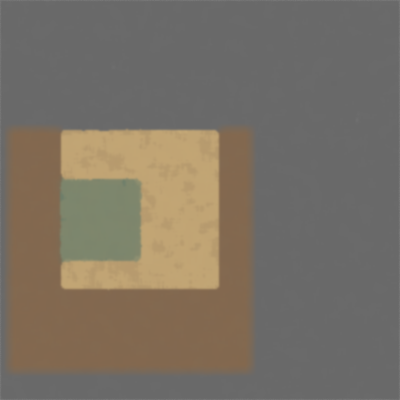 |
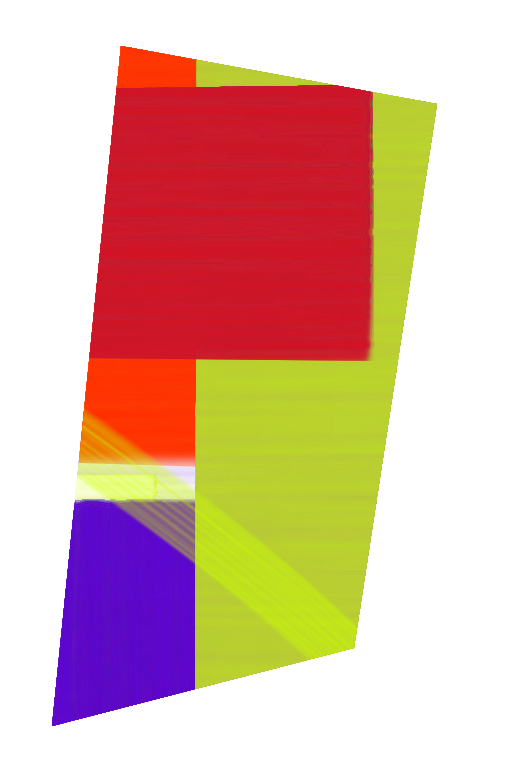 |
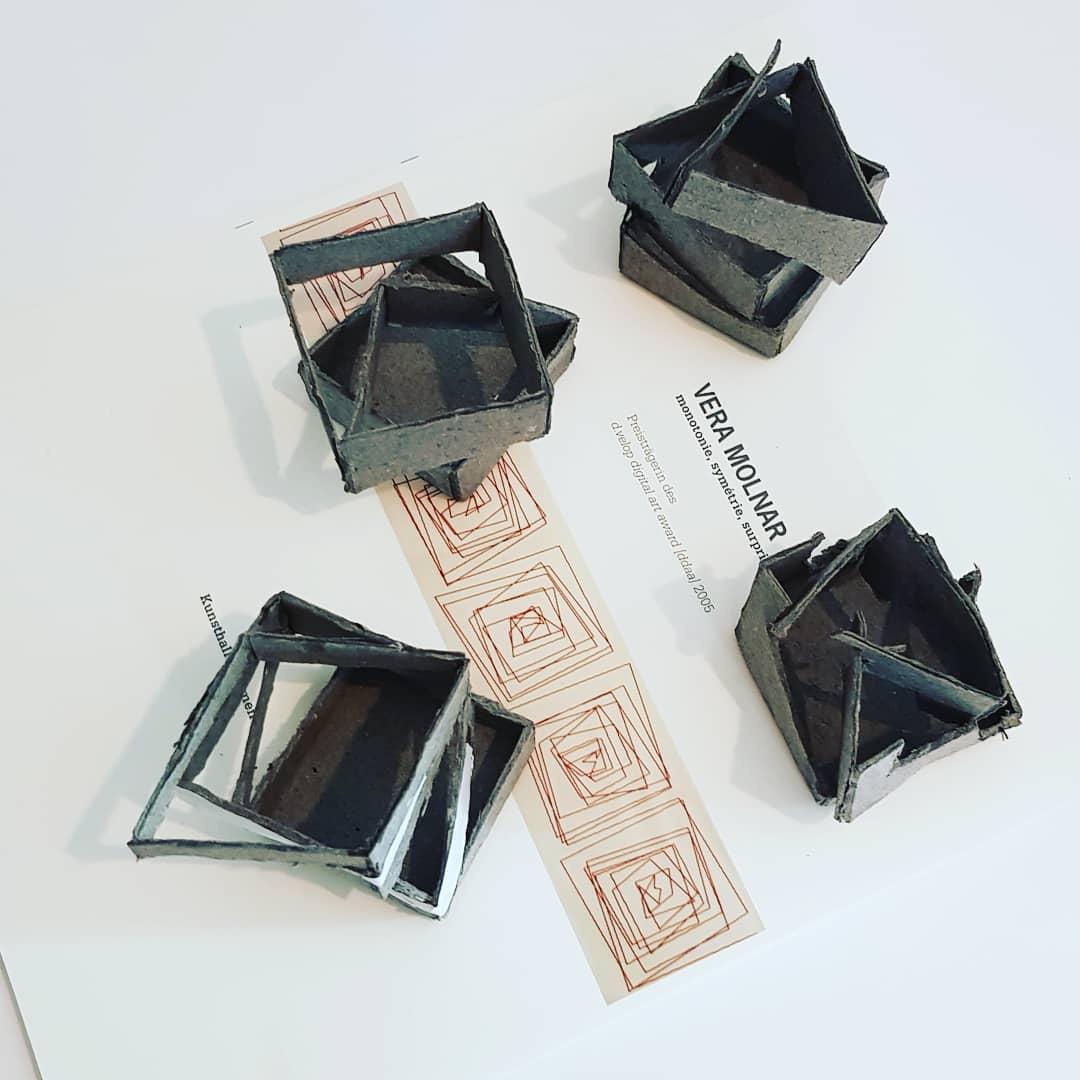 |
the basic concept
- create a square and add smaller squares to the border in general more inside(1) than outside(0.5)
- stack “layers of” squares on top to the main square
- building a block
- use of add and subtract operations
- minor squares can be boxes and frames of any type - no pure planes though
- grid vs irritated grid vs no grid
extended: squares or rectangles or quadrangles in squares or rectangles or quadrangles
| lieschen mueller right: totally random, not orientated |
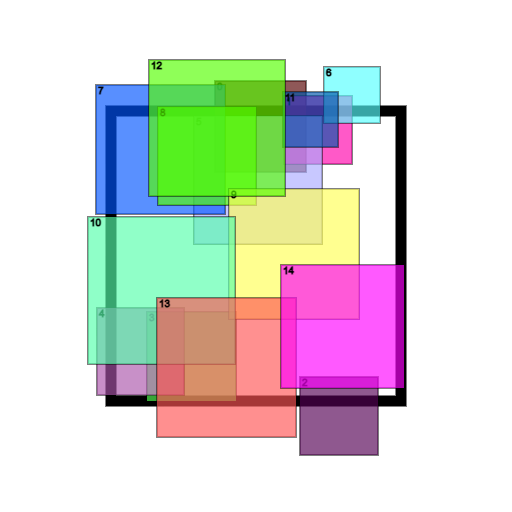 |
|---|---|
| © 2023 July | First variant of the Athens Block left: generated by pre and script blocks right: by input texts |
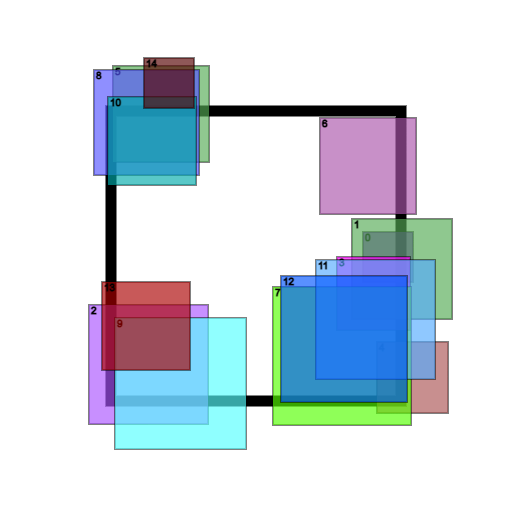 |
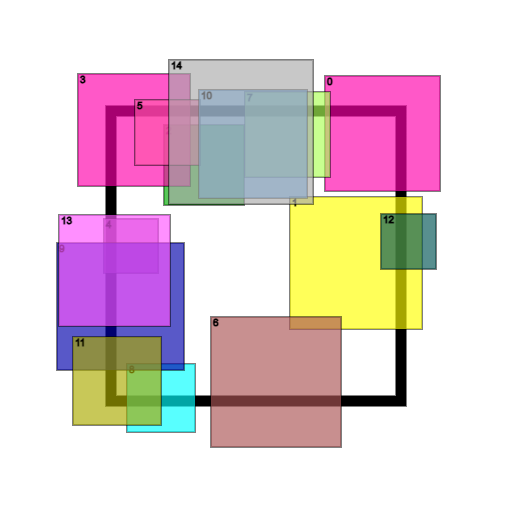 |
| © 2023 July | Second variant of the Athens Block left: made with pre and script blocks right: by input texts |
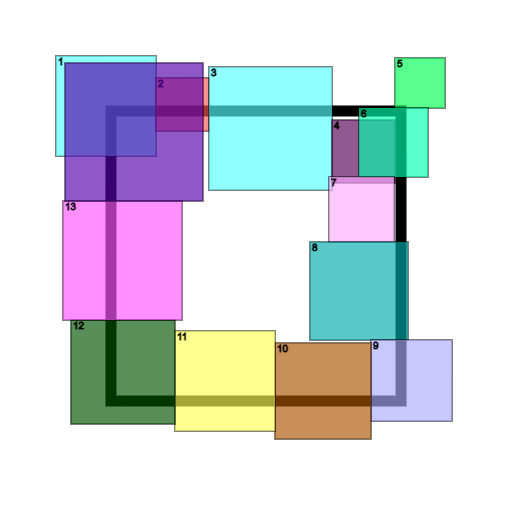 |
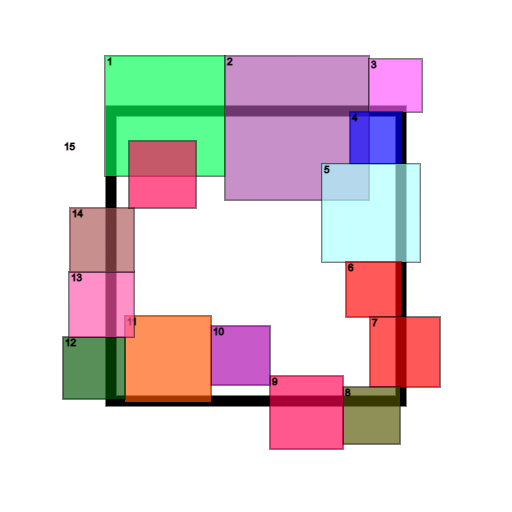 |
the use of tweetRandom here
tweetRandom uses an text input, uses their modular of 256 byte values, as if they were ASCII not UTF-8+ nowadays,
and generates a sequence of values between 0 and 1 which appears to be random
architecture as a proto/archetype of an universal language
The bear and burden of/in
build stable: carry and load
mobile building: movement, balance, compensation
building socially: speaking, acting, regulating
Communication, Commerce, Laws-Religion-Politics-Arts
6x6 units grid version
to program the 3d version(s) of Athen’s block, I did a 6 times 6 grid version:
the texture aka plan on the 6x6 grid
a single block min height is 1 half unit, max height is 5 half units
single block width min 1 half unit, max 5 half units
where we start? edge() or on line left, bottom, right, top?
clockwise or counter clockwise?
max height/width per line is 6 units
calculated : last block.pos,x|y + width|height must be width in >=0, <=6 units depending on clockwise
turns around util the last edge is reached(open) or the first block is reached (closed)
edge to edge turnarounds are always closed, because the first block is an edge block
variants for turnarounds: 1st. edge to 1st. edge(closed), edge to block(open),
block to edge(open), 1.st block to 1.st block (closed)
1st. edge to last edge(open), 1st. block to last block(open)
no turnarounds: line combinations: left&right, top&bottom
the face is 4x4 units
top, left, bottom, right border lines of the face
- top line: 1,1 to 5,1 pos.x = block.width,
pos.y = mediate height around 1 (halfunit is either, 0.5 or 1)
pos.y = 0. 0.5, 1 units - right line: 5,1 to 5,5
pos.x + width = 6, 5.5, 5 - bottom line: 5,5 to 1,5
pos.y + height = 6, 5.5, 5 - left line: 1,5 to 1,1
pos.x = 0, 0.5, 1
| lieschen mueller | © April 2024 |
|---|---|
| 6 times 6 grid | 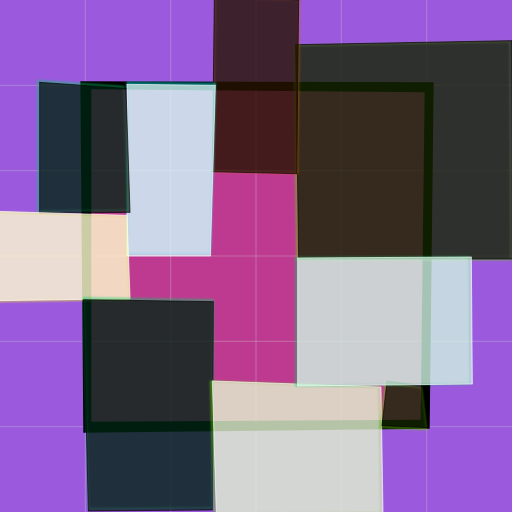 |
| 3d and 2d version the 2d image is the plan of the 3d model, colour and light yet 3d uses light, emission and colous 2d has only shadow-colours and colour |
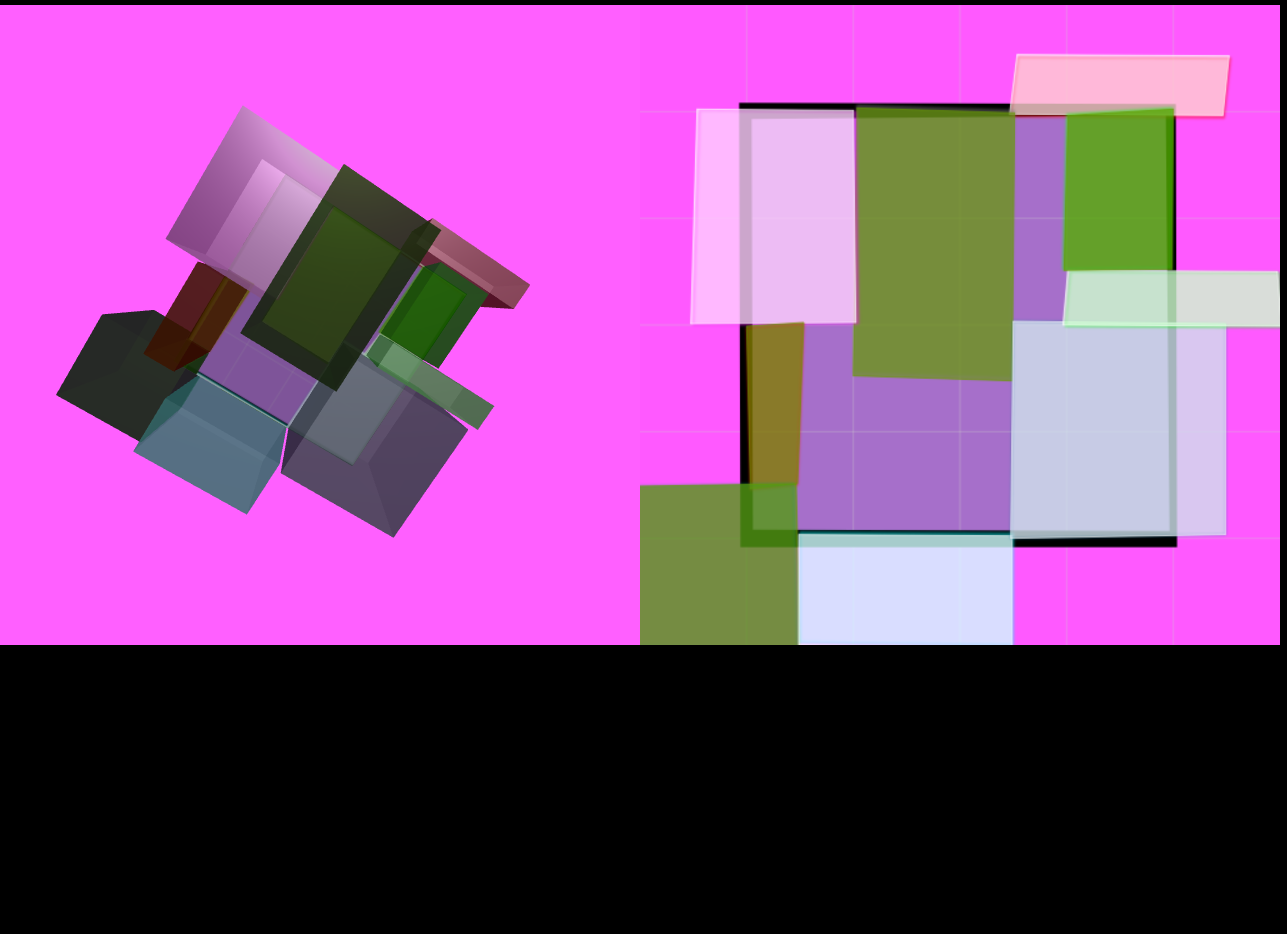 |
A variation Athen’s block algorithm is used in the 3d_20rooms, libraryScribbleStructures and other generators.
It links back to bezierBubbles, bezierBubbles_3b_ani, bubbles_sq and landscape generators, and the concepts of the virtual-garden.
With the virtual, architectural space in main focus, the algorithms explore media from plain image, relief to sculpture and animation. They evaluate concepts of block building, extended blocks, framing vs unframing, openness vs enclosure.
They might be seen as a representation of a common social space, an idea of a democratic environment.
Navigation Gustav Metzger Tweetbot Break In The Frame